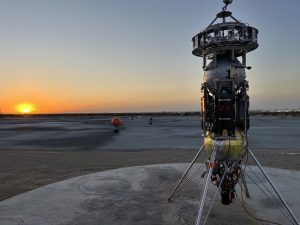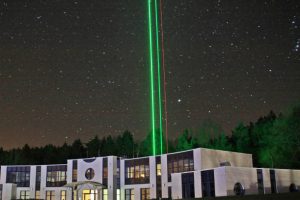Measuring 100mx100m, the “high-fidelity 3D test field” mimics the topography and optical properties of the Moon’s surface, said the company. The site will be used for testing spacecraft and rover sensors, for example lunar landing technologies like LiDAR scanners, and also navigation algorithms for lunar rovers and other robotic systems.
High-fidelity
“Our Lunar Surface Proving Ground stands out as the most realistic test field of this scale, modeled directly from a lunar surface map, anywhere in the world,” said Sean Bedford, Director of Business Development at Astrobotic.
“We’re excited to simulate the lunar landscape for high-fidelity testing here on Earth as industry, government, and academia develop Moon to Mars capabilities.”
The terrain of the mock moonscape is modelled after a map of the Moon’s South Pole, generated with Astrobotic’s LunaRay simulation and terrain modelling tools. The test field can also simulate the extreme lighting conditions encountered at the lunar poles.
Pictured above is the company’s Xodiac VTVL rocket next to the LSPG in Mojave.
Moonscape challenges
The first use of the site will be a Nasa TechRise Student Challenge to be followed by the NASA TechLeap Prize’s Nighttime Precision Landing Challenge. Draper, San Diego State University, and Astrobotic itself also have test activities planned in the coming months.
“Allowing students, the next generation of engineers and rocket scientists, to be the first customers to use the LSPG is exciting for our team,” added Bedford, “It’s our mission to make space accessible to the world and this one-of-a-kind test field is another big step in making that goal a reality.”
Image: Astrobotic
See also: Nasa backs Astrobotic for Moon power generation services
 Electronics Weekly Electronics Design & Components Tech News
Electronics Weekly Electronics Design & Components Tech News

